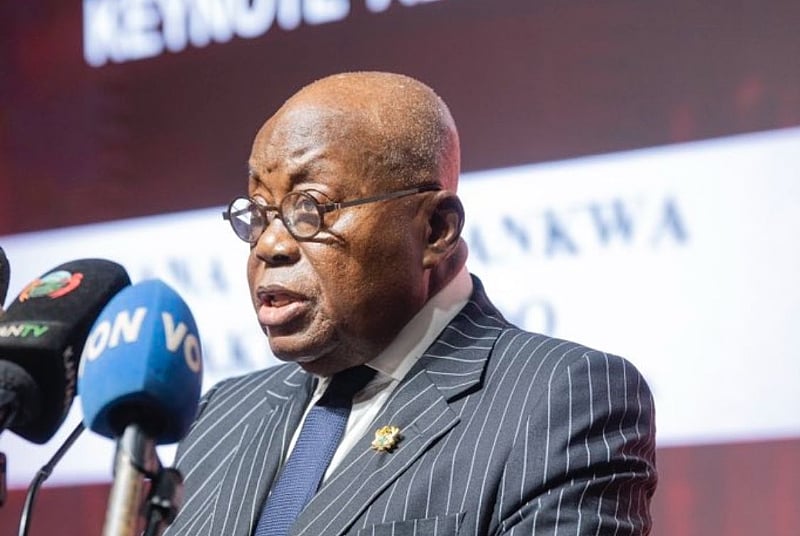The presidency of Nana Addo Dankwa Akufo-Addo in Ghana was marked by significant economic challenges that culminated in widespread public protests and ultimately contributed to his electoral defeat. Akufo-Addo himself acknowledged the impact of these demonstrations, recognizing that they fueled growing public discontent with his administration. The economic crisis, characterized by restricted access to global capital markets, forced the government to seek assistance from the International Monetary Fund (IMF), a decision fraught with political implications. This economic hardship pushed Ghanaians to the streets, echoing historical protests like the Structural Adjustment Programme (SAP) riots, although not reaching the same scale of intensity.
The protests, sparked by rising unemployment and soaring inflation, manifested in various forms, including the Kume Preko Reloaded demonstration led by Lawyer Martin Kpebu, the Arise Ghana demonstrations, and the highly publicized OccupyJulorBiHouse protest. These demonstrations reflected a deep-seated frustration with the government’s handling of the economic crisis. While the protests varied in their specific aims and organizers, they shared a common thread of discontent with the prevailing economic conditions and the perceived inadequacy of the government’s response. The OccupyJulorBiHouse protest, in particular, highlighted the growing boldness of the protest movement and the increasing willingness of citizens to directly challenge the government. The arrests that followed this protest further underscored the tension between the administration and the protesting public.
Akufo-Addo’s admission of the protests’ impact on public perception reveals a candid assessment of his administration’s challenges. He acknowledged that while the protests might not have reached the historical scale of the SAP riots, they significantly contributed to a growing sense of dissatisfaction among the population. This acknowledgment suggests an understanding of the link between economic hardship, public protest, and political consequences. The protests served as a barometer of public sentiment, revealing a growing disconnect between the government and the governed. This disconnect ultimately played a crucial role in shaping the political landscape leading up to the 2024 elections.
The economic difficulties faced by Ghana under Akufo-Addo’s leadership were multifaceted. The restricted access to international capital markets limited the government’s ability to finance development projects and address pressing economic needs. The subsequent turn to the IMF, while potentially offering a path to economic stabilization, often carries political baggage and can be perceived as a sign of economic weakness. This perception, coupled with the tangible hardships experienced by ordinary Ghanaians, contributed to the escalating public discontent. The rising unemployment and soaring inflation further exacerbated the situation, placing immense pressure on households and fueling the flames of protest.
The various protest movements that emerged during this period represented a diverse cross-section of Ghanaian society. From the legal profession, represented by Lawyer Martin Kpebu, to grassroots movements like Arise Ghana and the more radical OccupyJulorBiHouse, the protests demonstrated a broad-based frustration with the government’s performance. These movements capitalized on the prevailing economic hardship and effectively channeled public anger into organized demonstrations. The protests served as a platform for citizens to voice their grievances and demand accountability from their elected officials. The diversity of these movements reflected the widespread nature of the economic challenges and the collective desire for change.
The 2024 elections delivered a decisive verdict on Akufo-Addo’s administration. The opposition party secured a significant victory, winning by a margin of 1.7 million votes and reducing Akufo-Addo’s party to just 88 Members of Parliament, a sharp decline from their previous 137 seats. This electoral outcome underscores the profound impact of the economic crisis and the subsequent protests on the political landscape. The public’s dissatisfaction with the government’s handling of the economy clearly translated into votes against the incumbent party. The scale of the defeat suggests a widespread rejection of the status quo and a desire for new leadership to address the pressing economic challenges facing the nation. While the opposition party has yet to fully acknowledge the role of the protests in their victory, the correlation between public discontent, widespread demonstrations, and the electoral outcome is undeniable. The protests served as a catalyst for change, mobilizing public opinion and ultimately contributing to a significant shift in the balance of power.


